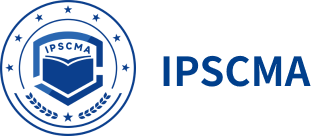As the global supply chain environment becomes more complex, procurement professionals are under unprecedented pressure to update their knowledge. According to Deloitte's 2023 Global Procurement Trends Report, 76% of procurement managers believe that traditional procurement skills are no longer sufficient to fully meet the needs of their current jobs. Under the wave of digital transformation, procurement personnel not only need to master traditional negotiation skills and supplier management capabilities, but also actively embrace new technologies, new ideas and new methods. In this article, we'll take a deep dive into how procurement professionals can refresh their knowledge and empower themselves in times of change.
The procurement function has evolved from a traditional cost control center to a strategic hub for enterprise value creation. According to PwC research, as of 2023, more than 65% of companies have positioned their procurement department as a strategic decision-making player. This shift has led to the need for procurement professionals to have a more comprehensive knowledge structure, from supply market analysis to risk management, from sustainability to digital transformation, each requiring in-depth professional understanding and practical skills.
The main challenges faced by current procurement personnel come from three aspects: first, the rapid iteration of digital technology, new technologies such as artificial intelligence and blockchain are reshaping the procurement process; Secondly, the uncertainty of the global supply chain has increased, and geopolitical risks and trade policy changes require procurement personnel to have stronger risk identification capabilities. Finally, ESG (Environmental, Social and Governance) criteria are becoming an important dimension of supplier evaluation.
Based on new McKinsey research, procurement professionals need to focus on the following areas of knowledge renewal over the next 3-5 years: Digital Procurement Technology—including procurement process automation, big data analytics, and artificial intelligence applications, which can improve procurement efficiency by 30-50%. Supply Chain Risk Management – Establish early warning mechanisms and contingency plans to ensure supply chain resilience. Sustainable Procurement – Integrate ESG standards to promote sustainability for suppliers.
Procurement staff can update their knowledge in a number of ways. The first is the formal learning channel, such as attending professional certification courses (courses offered by CIPS, ISM, etc.), according to statistics, the average salary level of procurement personnel who have obtained professional certification is 15-20% higher than that of non-certified buyers. The second is the professional courses provided by online learning platforms, such as Coursera, LinkedIn Learning, etc., which can achieve knowledge acquisition anytime and anywhere.
Hands-on learning is equally important and can be expanded by participating in cross-functional projects and rotational programs. According to Accenture's research, procurement professionals with cross-functional experience have significantly better problem-solving and innovative thinking than single-function experience. It is recommended that procurement personnel participate in at least one innovation project or improvement plan per year to translate theoretical knowledge into practical ability.
In order to ensure the continuity and effectiveness of knowledge updating, procurement personnel need to establish their own knowledge management system. This includes setting clear learning goals, developing an executable learning plan, establishing a knowledge review mechanism, etc. Studies have shown that professionals who adopt a systematic learning approach have a 40% higher retention rate than random learning. It is recommended to adopt the "70-20-10" learning model: 70% of the time is spent on practical learning and project practice, 20% of the time is spent on peer communication and mentoring, and 10% of the time is spent on formal learning and professional certification. At the same time, digital tools (such as Notion, Evernote, etc.) are used to establish a personal knowledge base to achieve effective accumulation and retrieval of knowledge.
With the continuous upgrading of the procurement function, the roles of procurement personnel will be more diversified. The procurement experts of the future are not only procurement executors, but also strategic planners, innovation promoters and practitioners of sustainable development. Gartner predicts that by 2025, more than 80% of purchasing decisions will be made with the help of artificial intelligence, which requires procurement personnel to have the ability to learn and be open to knowledge.
